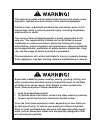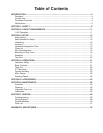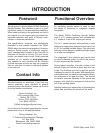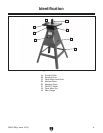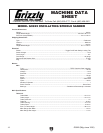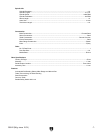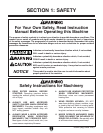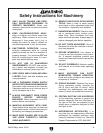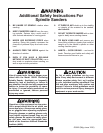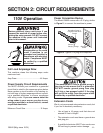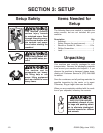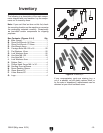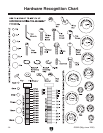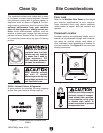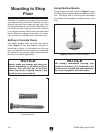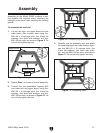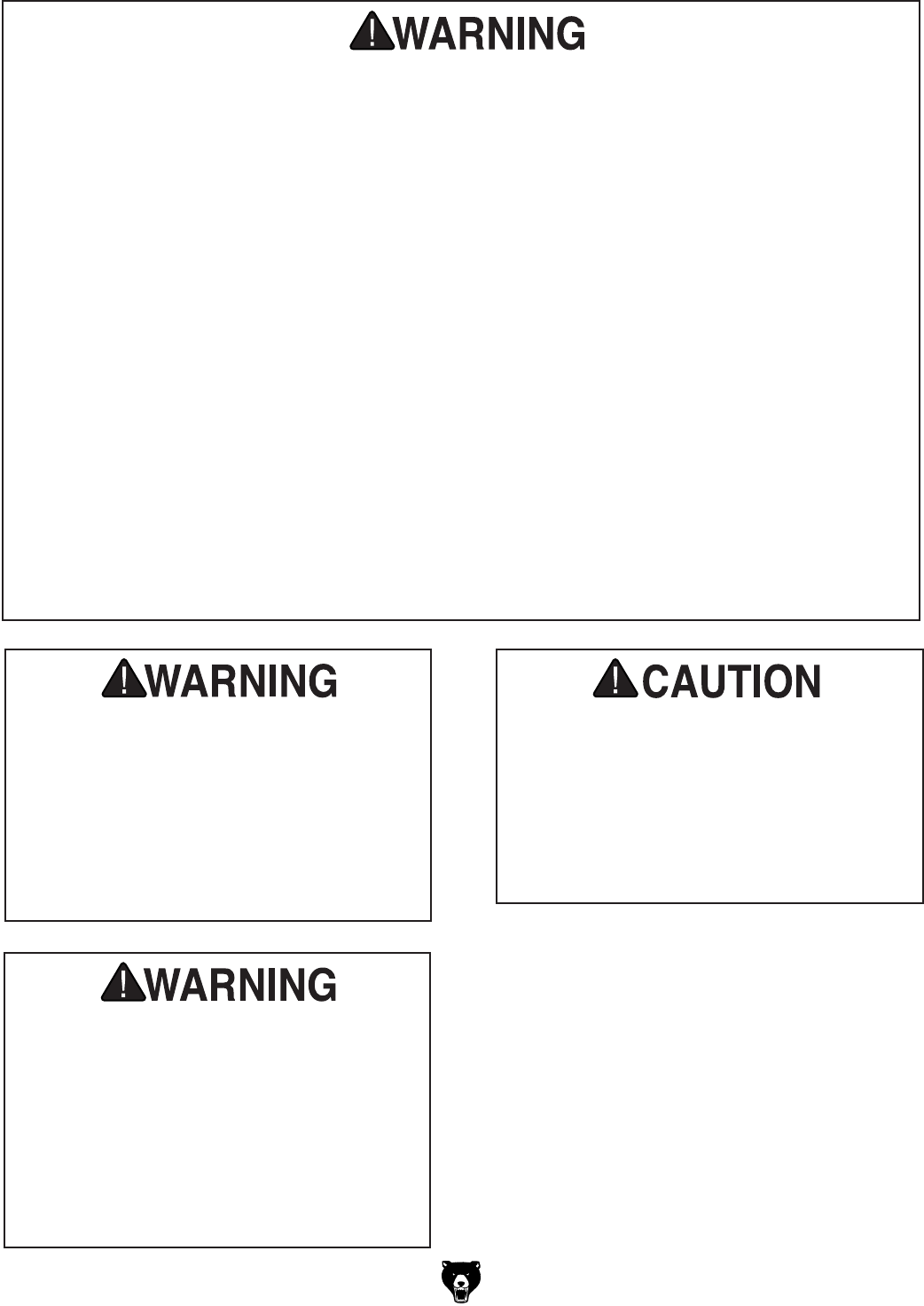
-10-
G9922
Additional Safety Instructions For
Spindle Sanders
1. BE AWARE OF SPINDLE rotation when
sanding.
2. KEEP FINGERTIPS AWAY from the mov-
ing spindle. Serious injury could result if
skin contacts abrasives or moving parts.
3. NEVER USE EXCESSIVE FORCE when
sanding. Doing this greatly increases the
chances of personal injury and motor over-
load.
4. ALWAYS FEED THE WORK against the
direction of rotation.
5. EVEN IF YOU HAVE A RELIABLE
METHOD OF DUST COLLECTION, use a
dust mask or respirator when sanding, as
well as eye and ear protection.
6. IF THERE IS ANY doubt as to the stability
or integrity of the material to be sanded,
don’t sand it.
7. DO NOT OPERATE SANDER with a dam-
aged or badly worn sanding sleeve.
8. TIE BACK LONG HAIR and remove any
loose-fitting clothing or jewelry that could be
caught up in the sander’s spindle or other
moving machine parts.
9. HABITS — GOOD OR BAD — are hard to
break. Develop good habits and safety will
become second nature to you.
Like all power tools, there is danger asso-
ciated with the Model G9922 Oscillating
Spindle Sander. Accidents are frequently
caused by lack of familiarity or failure to
pay attention. Use this tool with respect and
caution to lessen the possibility of opera-
tor injury. If normal safety precautions are
overlooked or ignored, serious personal
injury may occur.
No list of safety guidelines can be com-
plete. Every shop environment is different.
Always consider safety first, as it applies
to your individual working conditions. Use
this and other machinery with caution and
respect. Failure to follow guidelines could
result in serious personal injury, damage to
equipment or poor work results.
Operation of this equipment has the poten-
tial to propel debris into the air which can
cause eye injury. Always wear safety glass-
es or goggles when operating equipment.
Everyday glasses or reading glasses only
have impact resistant lenses, they are not
safety glasses. Be certain the safety glass-
es you wear meet the appropriate stan-
dards of the American National Standards
Institute (ANSI).



